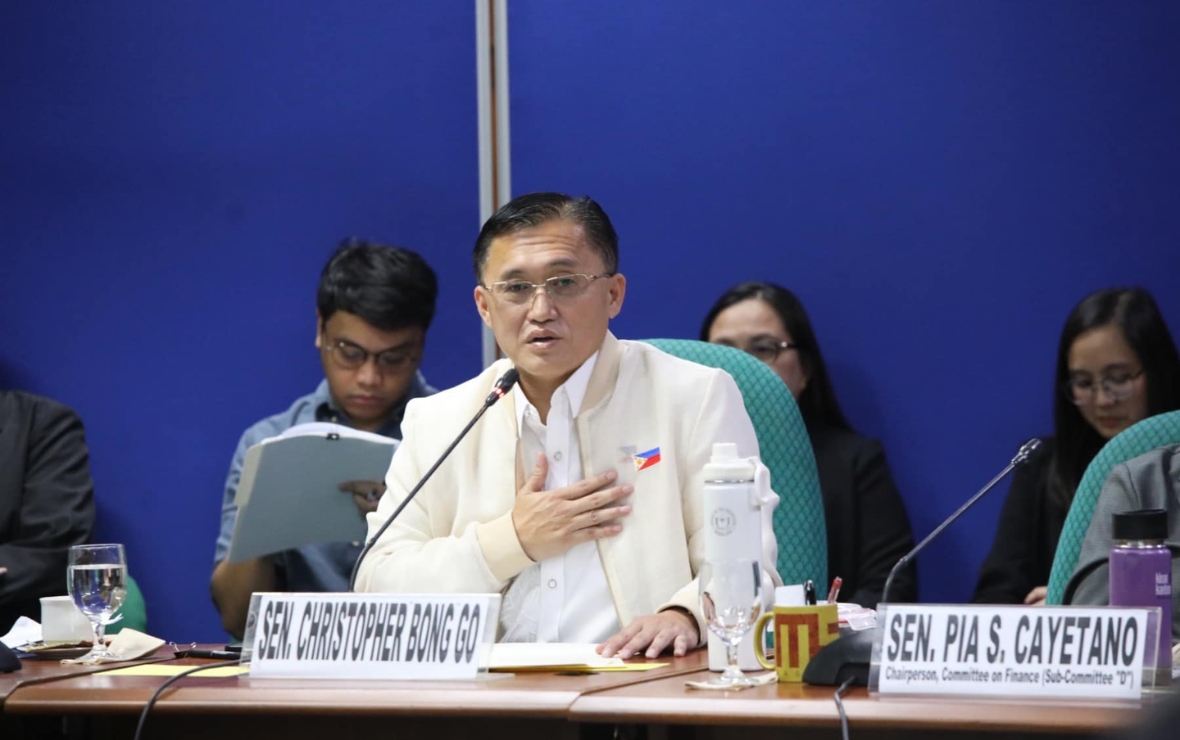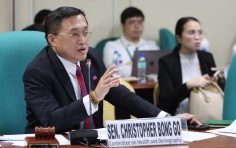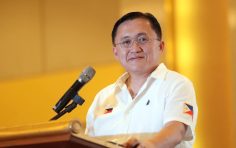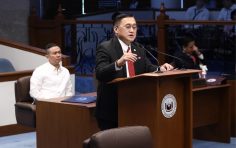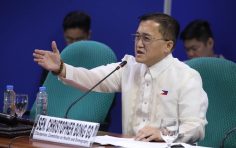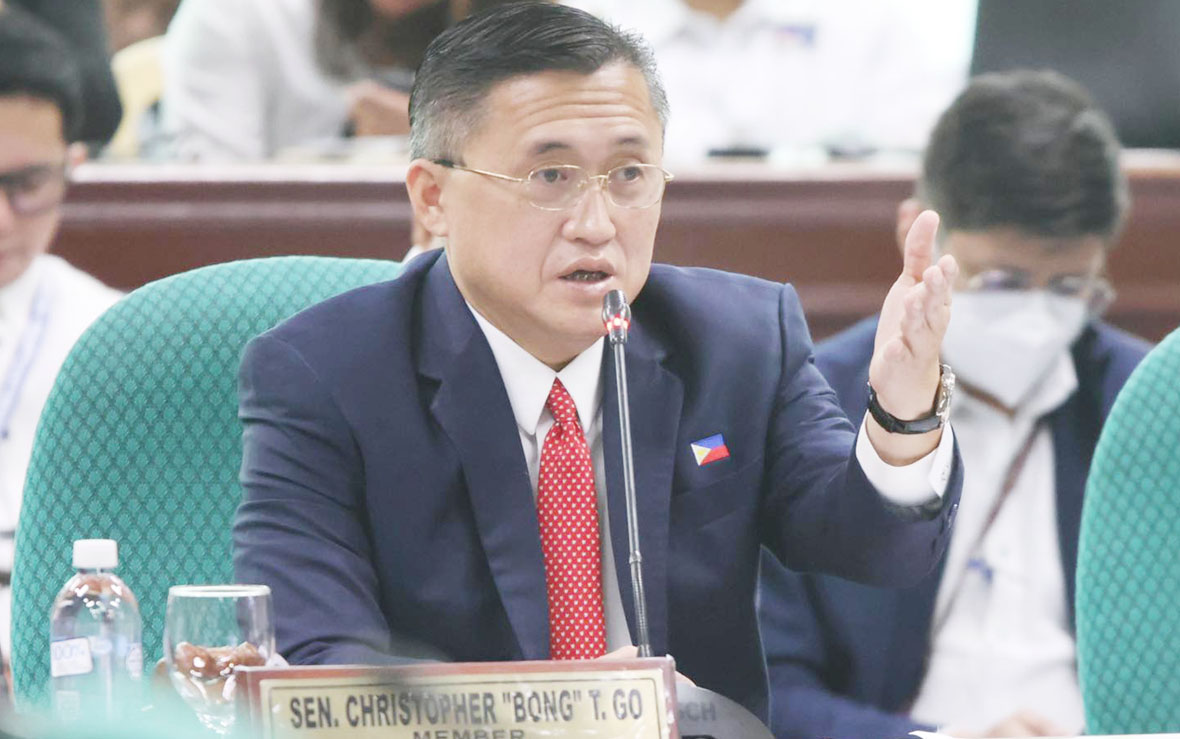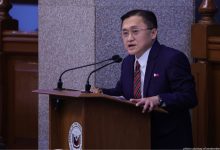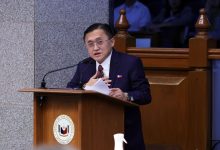In a public hearing held on Tuesday, October 8, Senator Christopher “Bong” Go, chairperson of the Senate Committee on Health and vice chair of the Senate Finance Committee, moved for the suspension of the deliberations on the proposed budgets of the Department of Health (DOH) as well as Philippine Health Insurance Corporation (PhilHealth) until their obligations and promises intended to benefit poor and indigent patients are fulfilled or formalized through signed commitment letters.
Before the Committee on Finance Subcommittee D presided by Senator Pia Cayetano could approve the proposed 2025 health budget, Go outlined his demands for written commitments from both PhilHealth and the DOH.
He first called for PhilHealth to sign a commitment letter, ensuring they would fulfill the promises they made during the hearings.
“Napakarami na pong naipangako ang PhilHealth,” Go said, reminding the agency of the agreements they made to improve healthcare accessibility for Filipinos.
Go also demanded that the DOH commit in writing to ensuring the continuous, unhampered operations of Malasakit Centers across the country. These centers, institutionalized through Republic Act No. 11463 principally authored and sponsored by Go, have provided financial assistance and medical support to more than 15 million Filipinos.
He emphasized the importance of maintaining sufficient funding and support for these centers, saying, “I wish to have the Secretary of Health sign a commitment letter and issue a department memorandum before we approve the budget of the agency stating that DOH shall ensure the sufficient funding and assistance shall be provided to guarantee the continuous and uninterrupted operation of all Malasakit centers nationwide.”
Cayetano highlighted that DOH and PhilHealth must comply with Go’s requests before its budget can be officially submitted for approval.
“Your budget is not officially deemed submitted, but it will be submitted once you comply with Senator Bong Go’s request,” Cayetano emphasized.
For PhilHealth, Go cited numerous promises made by its President Emmanuel Ledesma to recommend lowering of premium contributions; increase case rates; expand benefits; provide free medicines and assistive devices such as wheelchairs; cover emergency cases and preventive care; include more dental and optometric services; abolish outdated policies such as the 24 hour confinement requirement and the recently scrapped single period of confinement policy, among others.
For DOH, Go stressed the need to assure the continuous, uninterrupted and unhampered provision of medical assistance for indigent patients through the established Malasakit Centers nationwide.
These obligations and commitments of the concerned health agencies, he said, must be fulfilled or at the very least, be put in writing that they plan to deliver on their promises before the proposed budget for 2025 is approved at the Senate Committee level.
Go underscored the importance of investing in healthcare as the country moves toward post-pandemic recovery. “Ilang beses ko na rin pong nasabi, now is the time to invest more in improving our healthcare system,” he said, emphasizing that the proposed 2025 budget for the DOH is crucial for further enhancing medical services for Filipinos.
The discussion soon shifted to the issue of PhilHealth’s reserve funds, particularly PHP 89.9 billion in unused subsidies, which have drawn concerns from lawmakers. Go raised this issue directly to PhilHealth President Emmanuel Ledesma, saying that if these excess funds were instead utilized properly by PhilHealth to expand services to benefit the sick and the needy, then the finance managers would not need to resort to transferring these amounts to be used for other purposes.
He also brought up a PHP 500 billion reserve fund that PhilHealth was holding onto, criticizing the institution for failing to maximize available resources to benefit the people for their medical needs.
“Habang ang mga kababayan natin, naghihingalo, walang pambayad sa hospital, nagmamakaawa, tapos kayo, sobra-sobra ‘yung pera ninyo,” Go lamented.
“Napakarami po d’yan ng mga benefit packages na pwede n’yo pong isipin pa,” Go said, urging PhilHealth to make use of its available funds for preventive measures such as early detection of eye problems and dental care, which can reduce long-term medical costs.
Moreover, Go stressed that out-of-pocket expenses for patients must be reduced, calling on PhilHealth to take a more proactive role in supporting DOH’s medical assistance programs.
“Tulungan n’yo po ang DOH. Huwag kayo masyadong umasa sa medical assistance program po ng DOH,” he said, emphasizing that PhilHealth’s contribution could ease the burden on the health department and help indigent patients.
Go demanded transparency and clarity from PhilHealth, particularly how it intends to utilize their excess resources while still expecting additional augmentation from the national budget next year. He questioned the logic of requesting subsidies from the government while holding onto such significant reserves, stating, “Anong point na hihingi kayo ng subsidy? At the middle of the year, ipapabalik ng National Treasury.”
While Go understands the need for reserve funds to ensure the actuarial life of PhilHealth, he emphasized the need to strike a balance between proper fiscal management and ensuring that services benefitting the people are prioritized in maximizing its available resources.
“Kailangan ‘yan. If ever may pandemya na darating sa buhay natin. But planuhin n’yo po,” he said, emphasizing that the funds should be directed towards meaningful healthcare initiatives rather than returned to the treasury for other purposes.
“Ang pera para sa kalusugan ay dapat gamitin para proteksyunan ang kalusugan ng bawat Pilipino. Kaya nga PhilHealth, kasi ang pondo para sa health ay dapat gamitin para sa health!,” he emphasized further.

